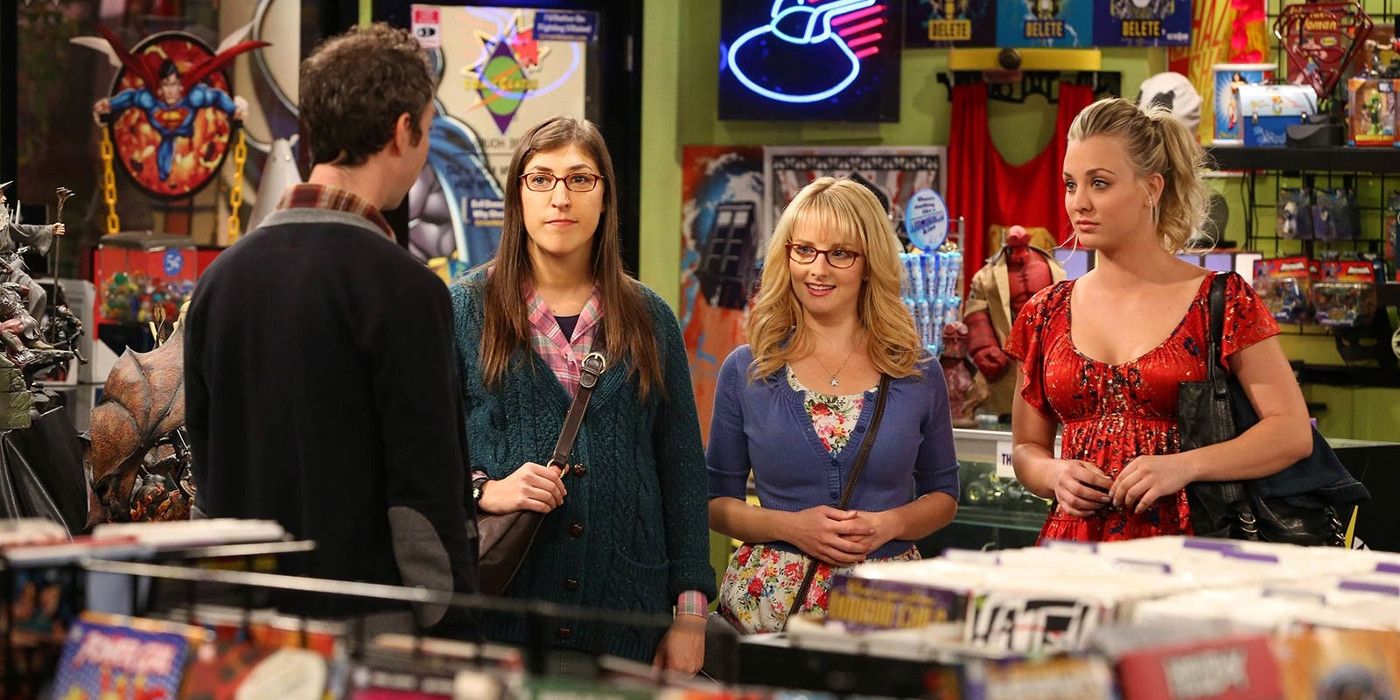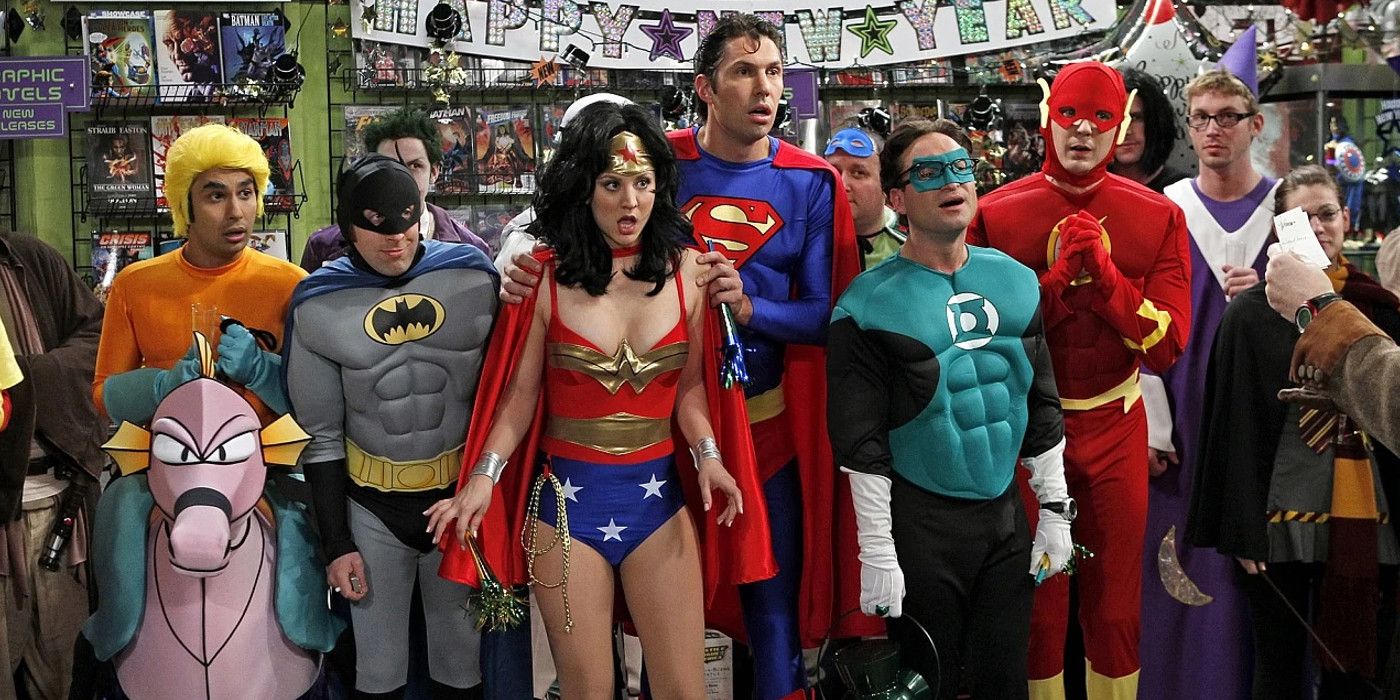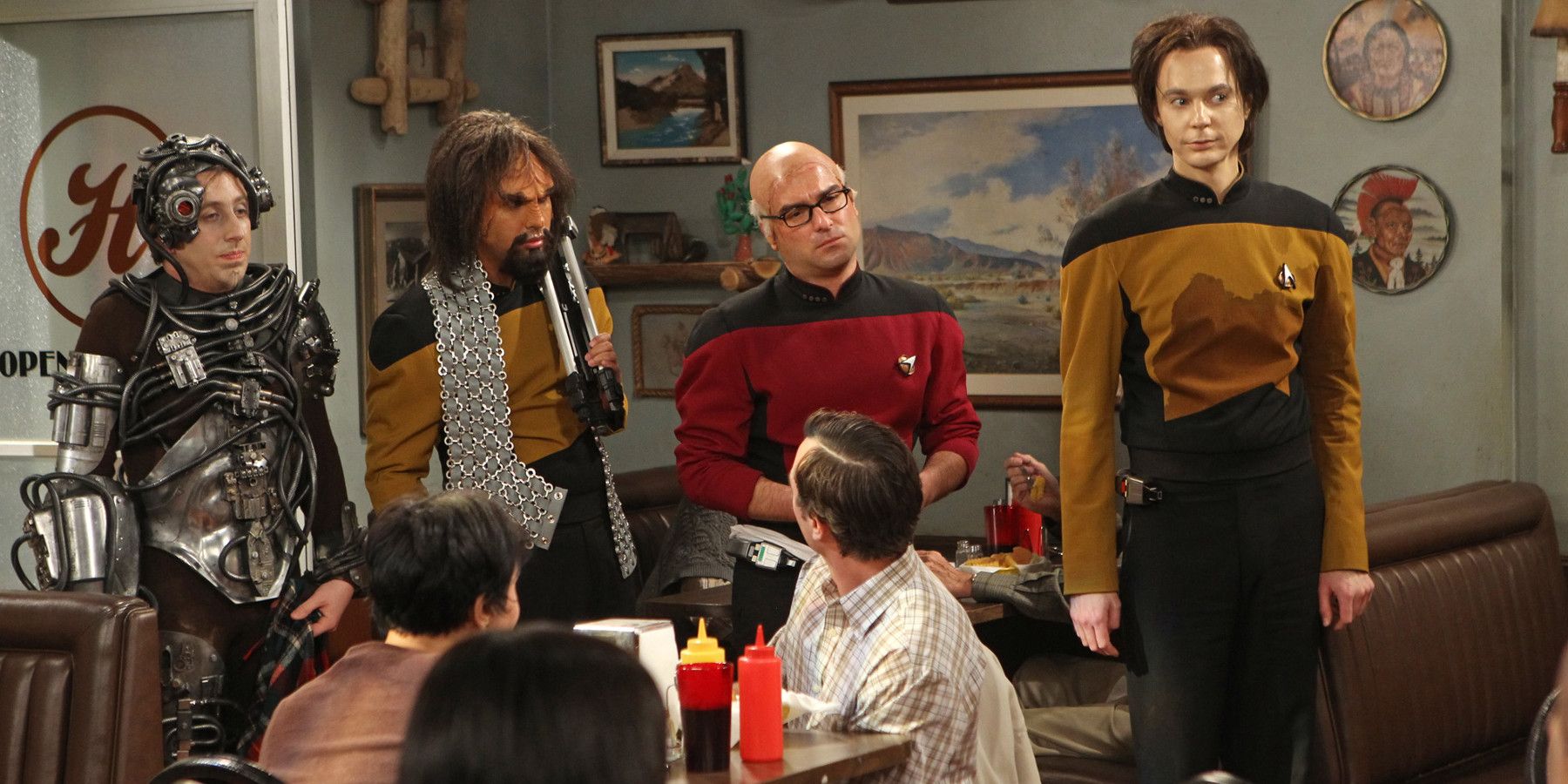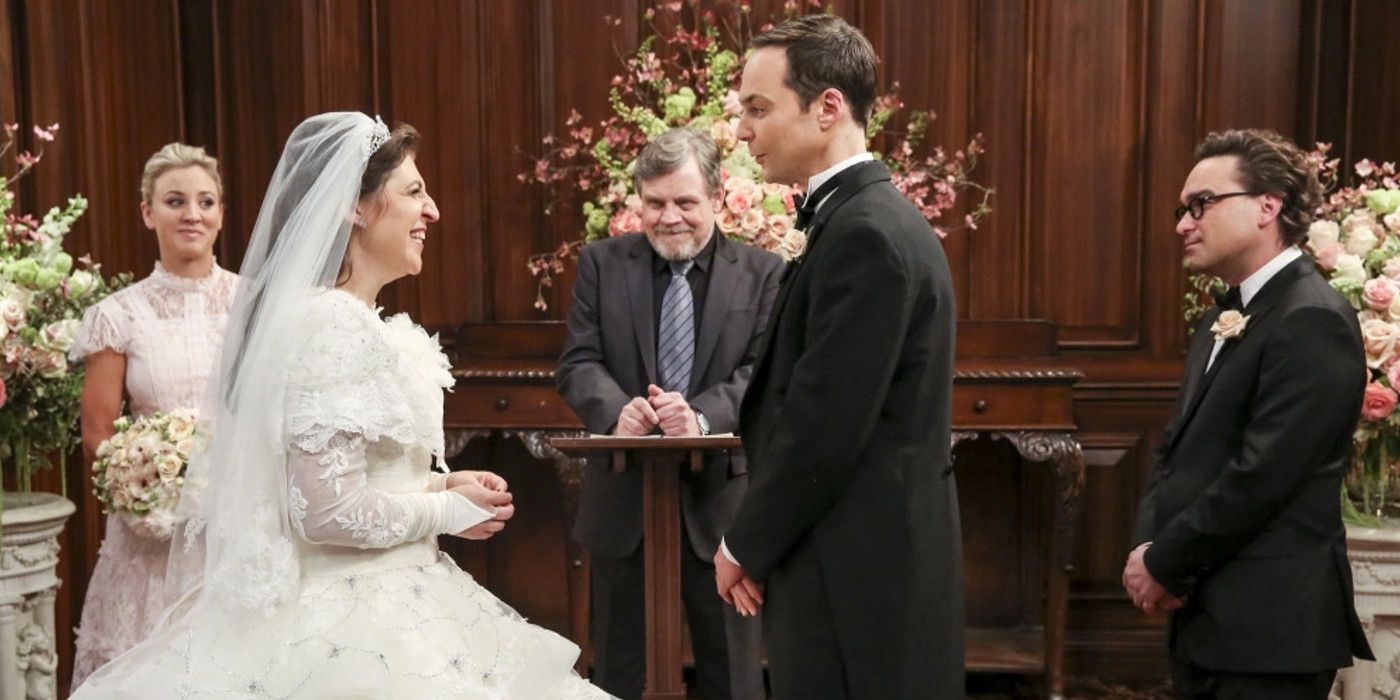The recent announcement that The Big Bang Theory would be coming to an end after its upcoming twelfth season was met with a joy not seen since Sir Patrick Stewart announced he would be returning to the role of Captain Jean-Luc Picard in a new Star Trek television series. Despite being one of America’s most highly rated situation comedies and one of the most heavily syndicated sitcoms in the world, the number of people who actively despise the show (the anti-fandom, if you will) seem to be far more vocal than the 15-20 million viewers that the latest episodes of the show reportedly attract each week.
The anti-fandom of The Big Bang Theory is made up of a diverse number of individuals. Some are self-proclaimed geeks who feel the show is built on negative stereotypes of nerd culture. Comedy aficionados suggest that the show’s writing substitutes actual jokes with pop culture references and scientific jargon. Some believe the show’s humor is overly stereotypical in general and built around outdated sitcom tropes. Still others, including some former fans of the The Big Bang Theory, feel the show has overplayed its hand and has grown stale and repetitive over the past few seasons.
- This Page: Why So Many Geeks Hate The Big Bang Theory
- Page 2: Big Bang Theory Ran Too Long, And Was Too Old-School
The Big Bang Theory Makes Fun Of Geekdom

The largest contingent of anti-fans are those people whom the show is allegedly based upon – nerds and geeks. While there is some distinction between the two terms, it cannot be denied that The Big Bang Theory stereotypes both groups to whom the terms are frequently applied (obsessive fans, and the highly educated). Specifically, the show suggests that anyone who works in a scientific field or is a fan of superheroes and science-fiction must be a pathological, socially awkward mess.
While there certainly are shy, quiet people who aren’t particularly well-spoken who enjoy comic books and role-playing games and STEM fields tend to attract people with an eye for detail, not every nerd or geek is as obsessive-compulsive as Sheldon or as tongue-tied around people to whom they are attracted as Raj. You would never know it from watching The Big Bang Theory, however, where women entering into a comic book store are regarded by the male patrons in much the same way that a horde of kobolds might view a first-level adventuring party invading their warren in a game of Dungeons and Dragons.
The problem, according to the self-identified nerds and geeks, is that the main characters are only comedic figures because of their hobbies and occupations and have no real emotional core beyond that. They argue that The Big Bang Theory‘s image of nerds and nerd culture is entirely based upon negative stereotypes. The characters may not wear taped glasses or pocket protectors like the titular heroes of Revenge of the Nerds, but the same spirit is there. The so-called comedy of the show is little different than that of a middle-school jock mocking someone for enjoying reading or playing chess.
The is particularly egregious given that other popular sitcoms have featured more nuanced nerdy characters. Terry Jeffords from Brooklyn Nine-Nine is both a tough-as-nails cop and a lover of cosplay and fantasy literature. Troy and Abed from Community broke numerous geek stereotypes, and virtually every character in Parks and Recreation was a geek in some form or fashion.
Related: Big Bang Theory’s Mayim Bialik Not Happy About Show Ending
The Pop Culture & Science Jokes Aren’t Really Jokes

A similar point of contention, which is raised by both self-identified nerds and comedic scholars, is that The Big Bang Theory doesn’t contain many actual jokes. Much of the “humor” is derived from merely mentioning various nerd-friendly properties or scientific principles. This is entirely different than Mystery Science Theater 3000, which is also built off of reference-based humor but within the context of whatever film it is mocking.
Referential humor is more than just listing off things that exist. There has to be a greater context to the reference and a meaning behind why the reference was made in the first place. This point was perhaps best illustrated by comedian Lyle Rath, in a 2016 video where he dissected one particular punchline from The Big Bang Theory episode “The Skywalker Incursion.” This episode set up a chain of events leading up to Howard speaking the line, “So it’s settled. The fate of Doctor Who’s TARDIS will be decided by a Game of Thrones-inspired death match on the battlefield of Thundercats versus Transformers.” The video, (which viewers should be warned contains strong language) leaves Lyle Rath screaming as he wonders why the mere mention of things like Game of Thrones and Doctor Who should elicit laughter.
In the minds of the writers of The Big Bang Theory, pointing out the fact that people like things like cosplay and dress up for special events is a joke unto itself. It is enough to just show a group of nonathletic nerds dressed as the Justice League. Again, we find ourselves faced with the middle-school bully, whose idea of comedy comes from merely stating the obvious and laughing like Nelson Muntz. (“Ha-ha! You’re old!“).
Page 2: Big Bang Theory Ran Too Long, And Was Too Old-School

Old-School Sitcoms Are Old-Fashioned
Even ignoring its treatment of nerd culture, The Big Bang Theory is based almost entirely on negative stereotypes. Most of the jokes about Raj are based around his Indian heritage and have drawn criticism from the same anti-defamation voices that took The Simpsons to task over the character of Apu. Howard and his mother offer an outdated take on the cliched domineering Jewish mother and her nebbish son. Even Penny, nominally the most normal member of the core cast, started out as nothing more than a walking dumb blonde joke.
While it can be argued that most comedy is based upon presumptions and stock characters, that does not excuse the need for characters to be developed beyond the status of a cardboard cutout. Consider the classic sitcom Cheers, which centered around the romantic tension between a promiscuous jock and the would-be intellectual he hired as a barmaid. The show developed Sam Malone and Diane Chambers into stronger characters with hidden depths as time went on and did the same for the rest of its supporting cast of bar-workers and barflies. The same cannot be said of The Big Bang Theory, whose cast remains largely unchanged after 11 years, despite finding love and getting married.
Apart from being lazy and potentially offensive, the show’s reliance on stereotypes seems particularly old-fashioned in these days when”geek chic” has come to dominate modern popular culture. It’s hard to suggest that there’s an inherent stigma in liking superheroes when the movies based on Marvel Comics have earned $3 billion in 2018 alone. And there’s no small irony that at the same time The Big Bang Theory was presenting Melissa Rauch and Mayim Bialik as the cliched cardigan-wearing nerd-girls, CBS’s most popular drama, NCIS, offered up a character like Abby Sciuto, who defied the stereotypes of nerds, goths and women working in a STEM field.
Then there’s the laugh track – a relic of old-school sitcoms almost as dated as Jewish mother humor and funny accent comedy. Many have taken The Big Bang Theory to task for its reliance on canned laughter. Indeed, many have noted that the laugh track frequently seems to be louder than the dialogue of the actors, so you can be sure of knowing when the show is funny.
Related: Big Bang Theory Season 12 Will Feature a Direct Young Sheldon Connection
It Got Too Saturated And Just Ran Forever

Even some of those who like The Big Bang Theory feel that the show has worn out its welcome. The show is so heavily syndicated that reruns of it can be seen on multiple cable channels simultaneously. The show is also frequently marathoned on TBS and the Canadian Comedy Network.
Ignoring how overplayed the series is now, most of the show’s long-running plots are long resolved. Every male member of the original cast has found love and gotten married, with the exception of Raj. Even the impossibly awkward Sheldon Cooper finally tied the knot with long-time girlfriend Amy Fowler in the finale of the eleventh season, with Mark Hamill himself officiating the ceremony.
It’s hard to say where this leaves The Big Bang Theory going into its final season. The obvious, and most likely answer, is that at least one of the established couples will experience a pregnancy, much like Niles and Daphne in the final season of Frasier or Ross and Rachel in Friends. Haters of the show, however, may hope that producer Chuck Lorre repeats himself once more and just kills the entire cast by dropping a piano on them, like in the finale of Two And A Half Men. Bazinga!




